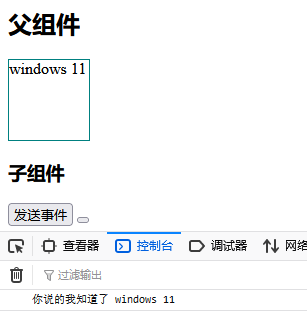1 Component Foundation
1.1 Component Concepts
Components can extend HTML elements by encapsulating reusable HTML, CSS, and JS snippets.
Components are similar to vue instances, such as having a template attribute inside the component to specify a template and an el attribute inside the vue instance to specify a template.
1.2 Component Features
(1) Components can be reused any number of times.
(2) The data of a component must be a function to ensure that each instance maintains a separate copy of the returned object, that is, changes to either component will not affect other components.
1.3 Component Definition
let component = {
data() {
return {
// Returns a unique copy of the object value, guaranteeing that the internal data of the reused components will not affect each other
msg: 'I am the component's data'
}
},
template: `
<div>
<p>I am a component</p>
<h1>{{msg}}</h1>
</div>
`
}
1.4 Component Reuse
When component reuse is used, the component modifies the data and the other components do not change the value.
<div id="app">
<my-com></my-com>
<my-com></my-com>
<my-com></my-com>
<my-com></my-com>
</div>
<script>
let component1 = {
data(){
return{
msg:'I am a child'
}
},
template:`
<div>
<h3>{{msg}}</h3>
<button @click="msg = 'New Data' ">Modify data</button>
</div>
`
}
</script>

2 Component Registration
For globally registered components, it can be used within any vue instance or component; Locally registered components can only be used within currently registered instances or components, which is similar to global and local variables in js.
(1)Global Registration --->Applicable to different components
For parameters within a component: the first parameter is a custom component name; The second parameter is the component configuration item
Vue.component('my-com', component);
If a component is called by more than one other component, global registration is better.
(2)Local Registration --->Suitable for multiple uses within a scope
Local registration is better if a component is called multiple times within an instance or component.
new Vue({
el: '#app',
data: {},
components: {
'my-com': component;//Local registration is registered in the #app instance, where it is used
}
})
3 Component Interaction/Communication/Value Transfer
3.1 Parent component refers to child component
The parent component uses the prop property to pass parameters to the child component.
<div id="app">
<my-com :attr1="atrr1"></my-com>
</div>
<script>
let component1 = {
props:{attr1}
}
let vm= new Vue({
el:"#app",
data:{
attr1:'I am the parent component data',
},
components:{
'my-com':component1
}
})
</script>
For props types and validation:
props Verification:
let component = {
props: {
title: {
type: String, // Validate data types
required: true, // The parameter that this parameter must pass
// Basic data types are written directly after default
default: 'Hello', // Default value of current parameter
// Returns an object or array as a factory function by referencing a data type
default() {
return { //Return to your default value}
}
validator(val) { // Custom Validator
return val.length > 3
}
}
},
}
3.2 Child component to parent component
Custom events are a mechanism by which child components pass state to parent components.
//Subcomponents
this.$emit('myEvent'); //Subcomponents send data up and carry events
//Parent Component
<my-component v-on:myEvent="parentHandler"></my-component>
Specific implementation:
<div id="app">"
//Used to receive data from subcomponents
<my-com @child-event="parentHandler"></my-com>
</div>
<script>
let component1 = {
data() {
return {
childData: 'I am subcomponent data';
}
},
template:`
<div>
<h3>Subcomponents</h3>
<button @click='toEmitHandler'>Send Events</button>
</div>
`,
methods: {
toEmitHandler() {
//The $emit method allows you to send events up and carry the data event name: child-event
this.$emit('child-event', this.childData)
}
}
}
new Vue({
el:'#app',
data: {
parentDate: ''
},
methods: {
parentHandler(data) {
console.log("You said, I know",data);
// data is the parameter this.childData is carried with the subcomponent when it sends an event
//Modify parent component data, determined by parent component itself
this.parentDate = data;
}
},
components: {
'myCom': component1;
}
})
</script>

3.3 Dynamic Parameter Transfer
No: - - Constant string passed
There are: - - passing boolean, number, object, array, variable
3.4 Unidirectional Data Flow
Updates to the parent's prop data flow down to the child components, which in turn does not work.
A parent component can modify data in a child component, while a child component cannot directly modify data in a parent component.
Role: Prevents child components from accidentally changing state, affecting state or data in parent components.